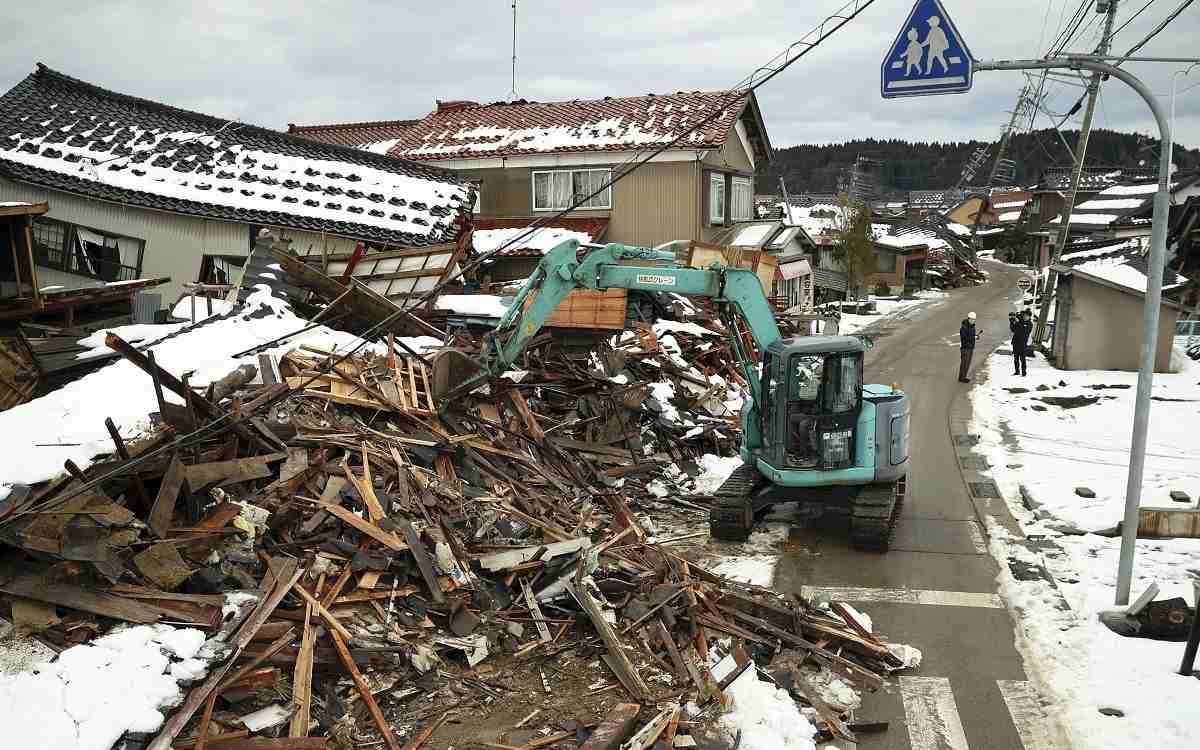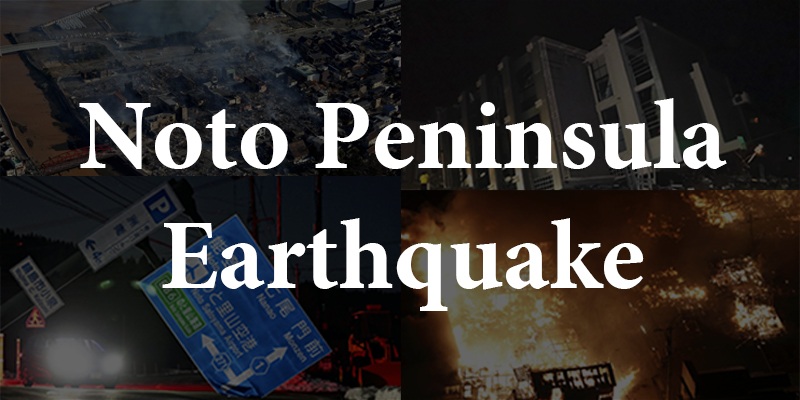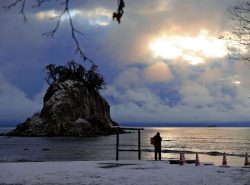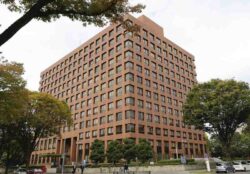Most Noto Quake Victims Don’t Want Secondary Evacuation; Reluctant to Relocate Because of Work, Family Obligations

Debris is removed from a road in Suzu, Ishikawa Prefecture, on Monday.
15:20 JST, January 31, 2024
Over half of the 133 Noto Peninsula Earthquake victims surveyed by The Yomiuri Shimbun said they were unwilling to move to secondary evacuation sites outside the disaster areas, with many of them giving work or family obligations as reasons.
The survey was conducted from Jan. 23 to 26, mainly at evacuation centers in the disaster-hit municipalities of Wajima, Suzu, Nanao, Shika, Noto and Anamizu, all in Ishikawa Prefecture. Of the 133 people surveyed, 21 were interviewed at secondary evacuation sites or relatives’ homes where they were staying, which included locations in other prefectures.
To prevent disaster-related deaths among evacuees, the Ishikawa prefectural government has secured hotels and other secondary evacuation sites in and outside the prefecture and is encouraging evacuees staying at primary evacuation centers, such as schools, to relocate.
The number of evacuees peaked at more than 30,000, and about 4,000 have moved to secondary sites.
When asked about secondary evacuation in the survey, only 32 respondents, or 24%, answered that they were either willing to relocate, have applied for relocation or have already relocated. A total of 89 respondents were unwilling to accept secondary evacuation, 21 of whom responded that they “did not feel the need,” and 68 of whom, or 51% of those surveyed, were unwilling to relocate despite feeling the need for it.
When asked to choose reasons for not accepting secondary evacuation, with multiple answers allowed, the most common response was “work,” given by 32 respondents, followed by 14 people choosing “nursing care or child care.” Among the 30 people who picked “other,” some said they felt bad leaving others behind, and some said they wanted to live in familiar surroundings.
The survey also asked about the damage to their homes. Eighteen respondents said their homes had “collapsed,” and 94 said their homes “tilted, or were damaged” by the earthquake. With damage caused by tsunami and other reasons factored in, a total of 121 respondents, or about 90%, said their homes were affected by the disaster.
When asked about problems faced in their daily lives, with multiple answers allowed, 86 respondents, or over 60%, cited “water outage,” followed by “not receiving enough information from the authorities,” chosen by 31 respondents, and “lack of sleep,” picked by 29 respondents.
Since the quake, 23 respondents had experienced staying overnight in their cars. There were 85 respondents who moved from one evacuation site to another, with some moving as many as six times.
Top Articles in Society
-

Producer Behind Pop Group XG Arrested for Cocaine Possession
-

Man Infected with Measles Reportedly Dined at Restaurant in Tokyo Station
-

Man Infected with Measles May Have Come in Contact with Many People in Tokyo, Went to Store, Restaurant Around When Symptoms Emerged
-

Woman with Measles Visited Hospital in Tokyo Multiple Times Before Being Diagnosed with Disease
-

Bus Carrying 40 Passengers Catches Fire on Chuo Expressway; All Evacuate Safely
JN ACCESS RANKING
-

Producer Behind Pop Group XG Arrested for Cocaine Possession
-

Japan PM Takaichi’s Cabinet Resigns en Masse
-

Man Infected with Measles Reportedly Dined at Restaurant in Tokyo Station
-

Israeli Ambassador to Japan Speaks about Japan’s Role in the Reconstruction of Gaza
-

Videos Plagiarized, Reposted with False Subtitles Claiming ‘Ryukyu Belongs to China’; Anti-China False Information Also Posted in Japan























